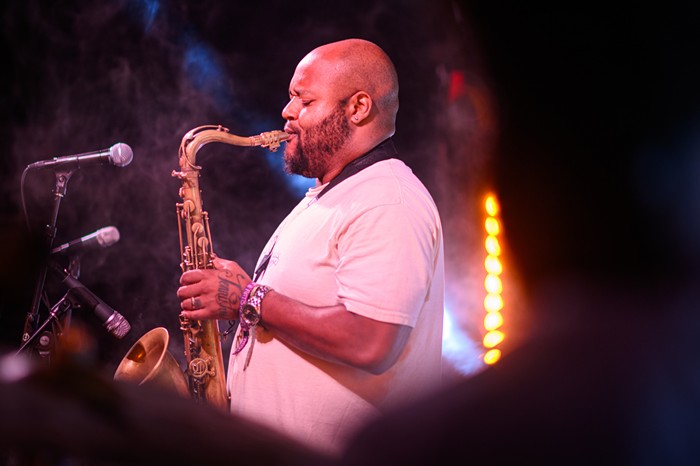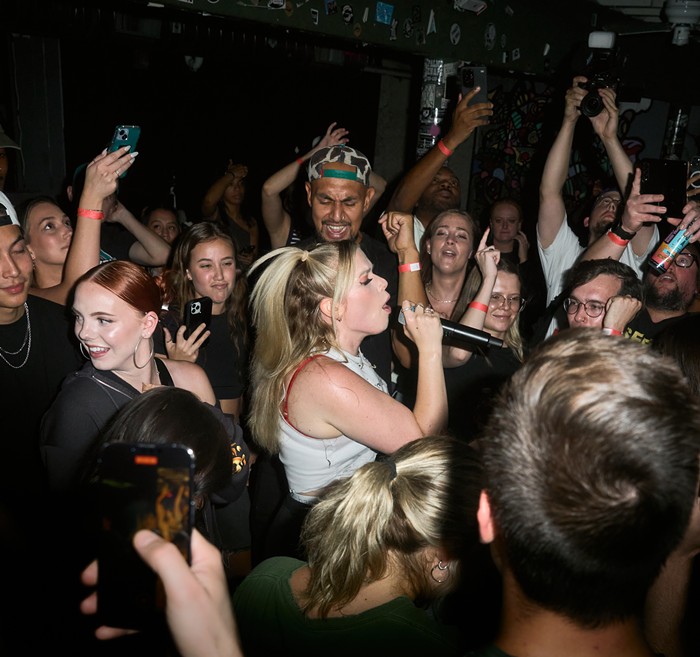CATACLYSMIC DOOM METAL is all the rage these days. Countless bands are writing bong-rattling riffs, played at tectonic-plate-shifting speeds, with morose lyrics—and vibes—to match. There's a time and place for things to be bleak, of course, but it can't all be horror and apocalypse all the time. Sometimes even the staunchest doom fan needs whiskey and a truckload of momma's muffins. That's where Goatsnake comes in.
"In the underground music scene there's a lot of darkness, gloom, and negativity. I think that's one thing that makes Goatsnake different," says guitarist Greg Anderson on a late afternoon phone call, at the end of his day job running Southern Lord Records. "The music is reminiscent of a lot of bands that are like that, but the lyrics and the vocals contrast the music. It's the light and the dark. Goatsnake tries to show more of a spectrum of colors, or any colors at all besides black and gray."
Black Age Blues, Goatsnake's first release in more than 10 years, certainly spins the color wheel throughout. You get Anderson's monstrous guitar tone, one that melds serious groove with syrupy sludge. You get vocalist Pete Stahl's soulful delivery, augmented by a gaggle of gorgeous female backing vocals. Add in Stahl's harmonica work and somehow you've got a rocking-chair-on-the-porch record that doubles as a sonically devastating slab of doom.
Despite the huge gap between releases, the underground was abuzz with anticipation for Goatsnake's latest work. When asked why he felt fans have stuck with the band, Anderson remembers what inspired him as a kid—music that was more about passion than talent and skill.
"With the music that we've created, it's honest, raw, and real. People respond well to that," Anderson says. "In my eyes, the audience that is into underground music is smart. They can sense when something is real, and when something is bullshit."
Even though Goatsnake's return is celebrated, Anderson warns fans not to expect a sudden flash flood of material from the band. "It's never gonna be a full-time thing," he says. "I like it that way because it makes it special. It almost feels like every single time we play it could be the last."



















